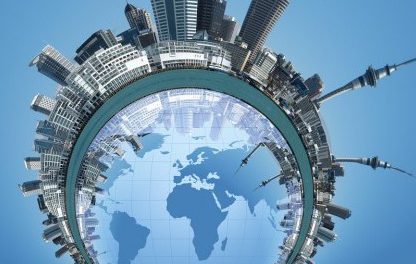Earlier this month, we talked about the destructive power of nature, focusing on global incidents like the heat wave in India and local occurrences like floods in Malaysia. Barely a week later, the Sabah earthquake tragedy happened. Was it caused by the nudists on Mount Kinabalu, whose actions angered the mountain gods, or just pure coincidence? I believe it’s more of nature showing its (her?) displeasure and discomfort at how the earth has been polluted, ravaged, and destroyed by the thoughtless actions of humans.
That sounds a tad much like the eco-warriors that fight for the environment and hope in a ‘green’ future, but it’s an undeniable truth that earth is in worse shape than it was less than 300 years ago. In fact, studies have shown that today’s changing weather patterns, global warming, environmental degradation, food production challenges and state of the human condition can all be attributed directly to the coming of age of man’s ingenuity: the Industrial Revolution. Many animal and plant species are lost from the wild to extinction – or at the point of extinction – directly due to habitat destruction, human development and agriculture in recent years.
Progress is all and good – look at cars, laptops, smartphones, the internet – but it comes at a price that can potentially ruin the very land we live on. It may look harmless reading these words on paper screen, but try watching movies like ‘2012‘, ‘The Day After Tomorrow‘, ‘Armageddon‘ or ‘Interstellar‘ in the cinema, and you’ll feel the hopelessness and helplessness of living in a world where impending doom awaits humanity. It’s a very sobering and humbling experience, and makes you more aware of the importance of protecting and preserving nature.
Nevertheless, progress must go on. In order to slow (or better, reverse) its negative effects on the environment, we should research and develop more sustainable ways to live, such as using solar and wind energy instead of fossil fuels, construct more green buildings, protecting plants and wildlife (especially those on the edge of extinction), and basically being a responsible citizen of this lovely blue-green planet. It won’t stop the tectonic plates from colliding, nor prevent a sleeping volcano from waking up, but maybe it can slow down the process, giving us precious time to think of more ways to save the environment and ourselves.
Coming back to the here and now, there is one pressing question: Am I waiting for an earthquake to hit Kuala Lumpur? Well, I’m not going to hold my breath, but let’s just say that I’ll be diving under the nearest sturdy table when I feel the ground under me shaking while I’m having dinner in my 10th floor apartment.
References
McLamb, E (2013) The Continuing Ecological Impact of the Industrial Revolution, Ecology.com
The Star Online (2015) Chance of KL quake remote, The Star: Nation





